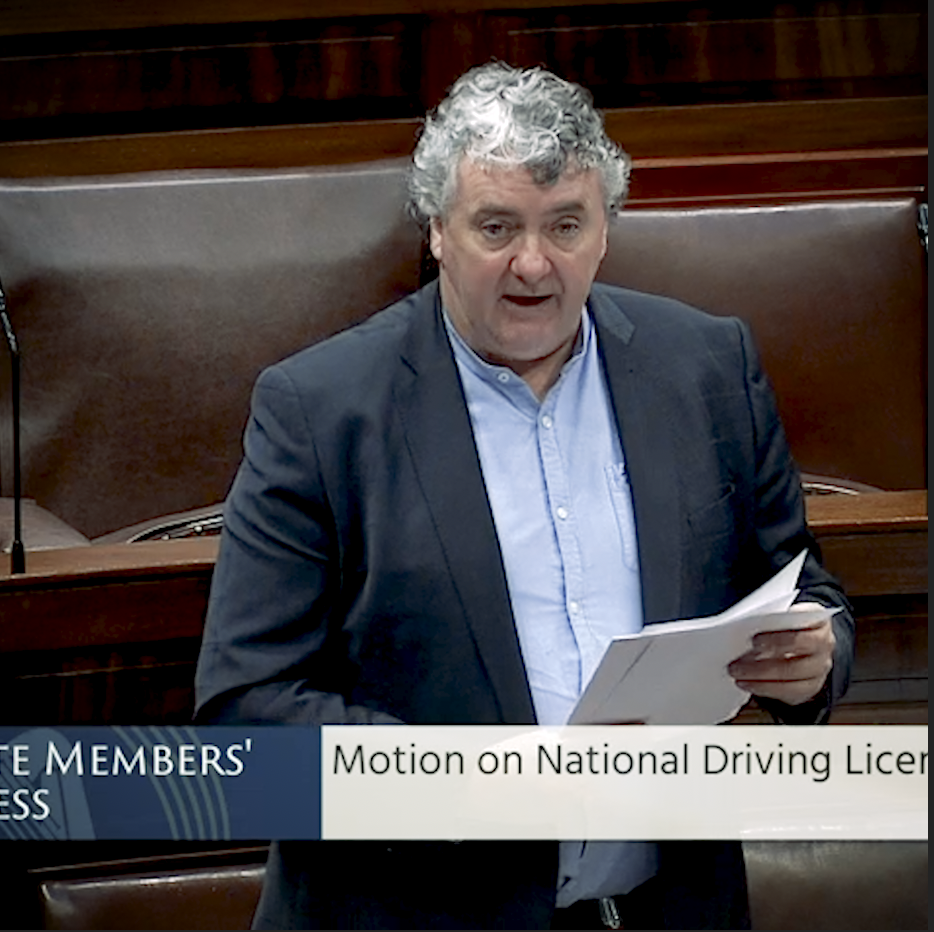- Pringle: We need a policy that recognises the importance of inshore fishing
- Pringle: Disabled people and carers face crisis of State neglect
- Pringle: Failed FF/FG housing policies forcing people to put their lives on hold
- Pringle welcomes Donegal council motion on Occupied Territories Bill: ‘We cannot stand by in the face of genocide’
Pringle slams steady roll-back of public service provision
- Updated: 2nd March 2022

Independent TD for Donegal, Thomas Pringle, slammed Government for what he called the steady roll-back of public service provision by successive governments.
Addressing the Dáil today, Deputy Pringle said: “We need to recognise that these are symptoms of a disease, not the disease itself. The symptoms are the obliteration of state-provided universal public service and its direct replacement with for-profit privatisation, where buzzwords such as efficiency and streamlining serve only to mask the reduction of service or the removal of universal service obligation as a core tenet.”
Deputy Pringle was speaking on an Independent group motion on the National Driver License Service.
Deputy Pringle said: “The issue of a walk-in service for renewal of a driving licence or indeed the contracting of the National Driver Licence Service may appear to many in this house to be inconsequential or beneath the highbrow issues more becoming of deliberation in the Dáil chamber.
“And yes, at face value that may appear to be true. But what we have to realise is these are just two examples of a steady creep of incessant roll-back of public service provision brought to you by successive Fine Gael and Fianna Fáil governments,” he said.
The deputy said: “Any doctor knows full well that treating the symptoms only goes so far – you must cure the disease. Identification of the disease is not difficult. It’s unfettered capitalism, the kind espoused and perfected in America by zealots such as Milton Friedman of the University of Chicago.
“And actions such as using the cover of the pandemic to remove the walk-in service at the likes of the NDLS are well-documented moves straight from Friedman playbook,” he said.
The deputy said: “The days where the backbench government TDs could vote in here to privatise public services or to dubiously auction state assets such as mobile phone licences, or to close post offices and Garda stations and then scurry off back to their constituencies and claim to be against the very same decisions, are coming to an end.
“You are being caught out and called out, and the people now are better informed and see through it. It’s the death by a thousand cuts nature of the privatisation of services and the inevitable reduction of that service that follows. I think that most gets to people.
“It is also the nature of who ends up worse off. It is easy for ourselves in here or younger citizens to navigate new online systems. So the burden falls on the older generations, or those without broadband, who tend to be rural, or those who simply cannot afford a broadband service. These are the people targeted by such moves,” he said.
The deputy said: “This is why the motion today to restore the NDLS walk-in service is important. It’s important to my constituents in Donegal as most of us will wait until 2025 for the government’s roll-out of broadband. It’s important for my constituents in Donegal as we have a higher proportion of older people than nationally. It’s important as well to my constituents in Donegal as we have lower disposable income and higher deprivation rates than most of the country. These issues are common for most of us from rural constituencies right across the western seaboard.”
Speaking later, Deputy Pringle noted that Minister Naughton told the Dáil that the decision not to accept cash at NDLS centres was made “after a market sounding exercise where only one potential bidder advocated accepting cash payments”, and after evaluating security, administration and value-for-money factors. He said these decisions must not be influenced by tenderers.
Deputy Pringle said: “It is vitally important that these services remain in public ownership and remain available to the public as a walk-in service.”



